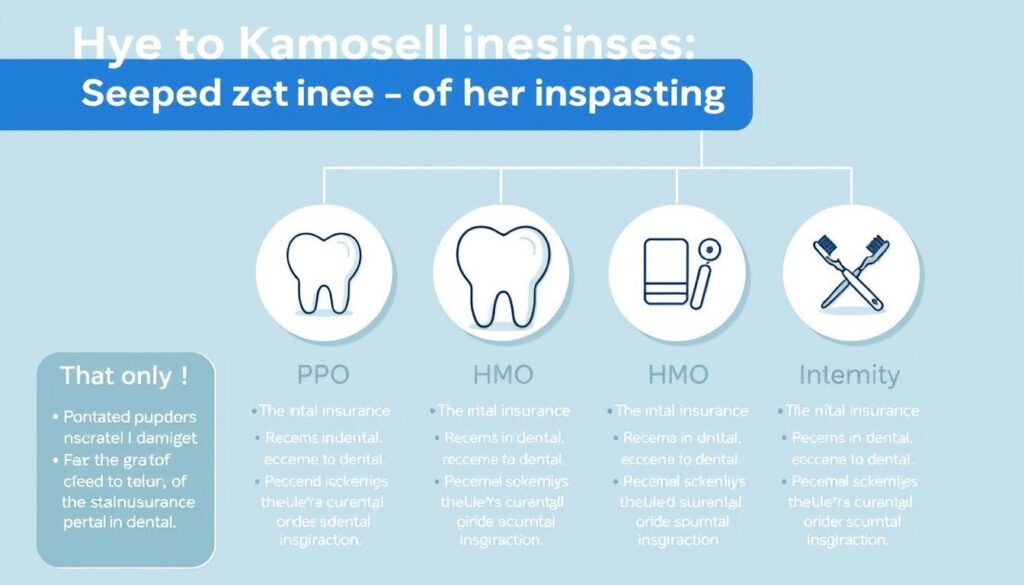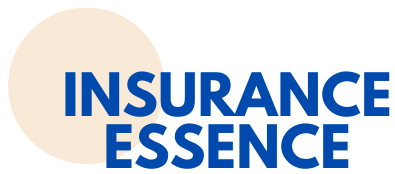As a self-employed person, keeping your teeth healthy is key. But finding the right dental insurance can be tough. Luckily, there are many options for self-employed folks, like freelancers and small business owners. This article will look at the different dental insurance plans and what to consider. We’ll help you pick the best one for your dental health and budget.
Key Takeaways
- Self-employed individuals have several dental insurance options, including traditional plans and dental discount programs.
- Traditional dental insurance plans may cover preventive, basic, and major dental services, while dental discount plans offer discounted rates on procedures.
- The cost of dental insurance for self-employed individuals varies based on factors like coverage level, provider, and location.
- DHMO and DPPO plans are the two main types of dental insurance, each with their own unique features and tradeoffs.
- Choosing the right dental plan involves considering your dental care needs, coverage limits, and network flexibility.
Understanding Dental Insurance for Self-Employed Individuals
As a self-employed person, keeping your teeth healthy is key to feeling good and working well. Dental insurance can be a smart choice. It covers many treatments, from simple check-ups to complex ones. Knowing why dental insurance matters for self-employed folks is important.
What is dental insurance for self-employed individuals?
Dental insurance for self-employed people is a health insurance add-on. It helps pay for dental care costs. This policy can cover various treatments, like cleanings, fillings, and even crowns and dentures.
Importance of dental coverage for maintaining oral health
Good oral health is vital for self-employed folks. It affects your overall health and how well you work. Dental insurance ensures you get regular check-ups and preventive care. This can save you money by preventing costly treatments later. Industry data shows dental discount plans like Smile Generation Dental Plan cost between $119 to $169 monthly. These plans offer up to 50% off most dental procedures with no deductibles, waiting periods, or maximums.
By getting dental insurance, self-employed people can focus on their oral health. They also avoid the surprise costs of dental problems.
“Dental insurance is an essential investment for self-employed individuals, as it helps ensure regular check-ups and preventive care, ultimately saving money in the long run by avoiding more costly procedures.”

Types of Dental Insurance Plans for the Self-Employed
If you work for yourself, you have many dental insurance options. Knowing the differences helps you pick the right plan for your needs and budget.
Dental Health Maintenance Organization (DHMO)
A DHMO plan means you choose a main dentist and get referrals for specialists. It’s often cheaper, with no deductibles, for routine care.
Dental Preferred Provider Organization (DPPO)
DPPO plans let you choose your dentists more freely. They cost more and might need a deductible. They’re good for big dental needs or specialist visits.
Dental Discount Plans
Dental discount plans aren’t insurance but offer discounts on dental services. They’re a budget-friendly choice for basic care like cleanings and check-ups.
| Plan Type | Premiums | Deductibles | Provider Network | Referrals Required |
|---|---|---|---|---|
| DHMO | Lower | No | Restricted | Yes |
| DPPO | Higher | Yes | Flexible | No |
| Dental Discount Plan | Low | No | Flexible | No |
Choosing dental insurance as a self-employed person depends on your needs. Think about how often you go to the dentist, what services you need, and your budget. By comparing each plan, you can find one that’s good for your health and wallet.

Obtaining dental coverage self employed
As a self-employed person, you have two main choices for dental coverage. You can add dental to your health insurance or buy a separate dental plan. Each option has its own benefits and things to consider. It’s key to think about what you need and what you can afford before making a decision.
Adding Dental Coverage to Your Existing Health Insurance Plan
One way is to add dental to your health insurance. This can save you money and make managing your insurance easier. You’ll have all your health needs covered by one provider. Big names like Blue Cross Blue Shield, Aetna, and UnitedHealthcare let you add dental to their plans.
Purchasing an Individual Dental Insurance Plan
Another option is to buy a dental plan from a different company. This lets you pick the dental coverage that fits your needs and budget. But, you’ll have to handle two insurance policies. Make sure to compare the coverage, costs, and network size of different plans to find the right one.
Choosing between adding dental to your health plan or getting a separate dental plan depends on your situation. By looking at your options carefully, you can get the dental care you need as a self-employed person.

Factors to Consider When Choosing a Dental Plan
Choosing the right dental insurance plan is important for self-employed individuals. You need to think about how often you go to the dentist and what preventive services are covered. These are key things to look at when picking a plan.
Frequency of Dental Care Needs
If you need a lot of dental work, like fillings or crowns, a plan with a higher premium might be better. It often has lower deductibles and cost-sharing. On the other hand, if you mostly need routine care, a plan with low deductibles and good preventive coverage is best.
Coverage for Preventive Services
Preventive dental care, like check-ups and cleanings, is vital for your teeth. Choose a plan that covers these services well. This can help prevent more expensive problems later on.
| Dental Insurance Provider | Network Size | Preventive Care Coverage | Average Monthly Premium |
|---|---|---|---|
| Delta Dental | 150,000+ dentists | 100% coverage | $20 – $50 |
| Anthem | 42 million customers | 100% coverage | $25 – $55 |
| Humana | 260,000 dentists | 100% coverage | $30 – $60 |
| Renaissance | 300,000 providers | 100% coverage | $35 – $65 |
| MetLife | Thousands of dentists | 100% coverage | $40 – $70 |
Think about your dental care needs and the preventive services coverage of different dental plans. This will help you choose a plan that fits your needs and ensures your teeth stay healthy for the long term.
Financial Benefits of Dental Insurance for the Self-Employed
As a self-employed person, getting dental insurance can bring big financial wins. You might get tax breaks on dental costs. Self-employment comes with tax perks, and you could deduct some dental insurance and costs from your taxes.
Dental coverage also means saving money over time. Regular check-ups and cleanings can spot problems early. This can stop expensive treatments like root canals or implants later on. So, you save money and keep your teeth healthy.
| Dental Insurance Benefit | Potential Savings |
|---|---|
| Tax Deductions on Dental Expenses | Up to 100% of premiums, with limitations based on net business income |
| Long-Term Cost Savings on Dental Procedures | Preventive care can help avoid more expensive treatments |
Using dental insurance as a self-employed person can protect your teeth and save money. It’s smart to look for the best dental plan for you. This way, you care for your health and finances at the same time.
Choosing the Right Dentist for Your Dental Plan
When picking a dental insurance plan, it’s key to check if your dentist is in-network or out-of-network. DHMO plans need you to see dentists in their network. DPPO plans might cover some out-of-network dentists, but it costs more.
To keep seeing your favorite dentist, look at the plan’s network of dentists. Know the price differences between in-network and out-of-network care. This helps you choose a plan that fits your dental needs and likes.
| Plan Type | In-Network Dentists | Out-of-Network Dentists |
|---|---|---|
| DHMO | Lower out-of-pocket costs | No coverage or higher costs |
| DPPO | Lower out-of-pocket costs | Partial coverage, but higher costs |
Knowing the network rules and cost differences helps you pick a dental plan. You can keep seeing your choosing dentist. This way, you pay less for in-network dentists and out-of-network dentists.
“Choosing the right dentist is crucial for maintaining your oral health, and your dental plan can play a significant role in that decision.”
Exploring Low-Cost Dental Insurance Options
If you’re self-employed and want to save on dental care, look into low-cost dental insurance. Compare the premiums, deductibles, and coverage for different services. Also, check the size and flexibility of the dentist network. This affects how much you pay and who you can see.
Dental discount plans are another affordable choice. They offer lower rates for dental services for a small annual fee.
Comparing Premiums and Coverage Levels
Dental insurance costs vary a lot, with premiums ranging from cheap to pricey. Look at the coverage levels for things like check-ups, fillings, and big procedures. This way, you can pick a plan that’s affordable and covers what you need.
Evaluating Network Size and Flexibility
The size and flexibility of a plan’s dentist network matter too. Choose plans with a large network of dentists for easier access and lower costs. Also, consider if you can see dentists outside the network. This gives you more choices and might save you money.
| Dental Insurance Provider | Premiums | Coverage Levels | Network Size | Plan Flexibility |
|---|---|---|---|---|
| Delta Dental | $20 – $50 per month | 100% preventive, 80% basic, 50% major | Large, with over 156,000 dentists nationwide | Allows out-of-network dentists, but with higher out-of-pocket costs |
| Cigna Dental | $15 – $45 per month | 100% preventive, 80% basic, 50% major | Extensive, with over 93,000 dentists in the U.S. | Offers in-network and out-of-network coverage options |
| Humana Dental | $18 – $55 per month | 100% preventive, 80% basic, 50% major | Broad, with over 290,000 access points nationwide | Provides in-network and out-of-network flexibility |
Finding the right dental insurance plan is all about what you need, how much you can spend, and the coverage you want. By looking at premiums, coverage levels, network size, and plan flexibility, you can find a plan that fits your self-employed dental care needs without breaking the bank.
Tips for Maintaining Good Oral Health as a Self-Employed Individual
As a self-employed person, keeping your mouth healthy is key for your overall health and work. Regular dental visits and cleanings are vital, even with insurance. They help spot and fix dental problems early. Also, good oral hygiene habits can stop costly, big problems later.
Importance of Regular Dental Check-ups and Cleanings
Recent studies show over 30% of adults over 30 have periodontal disease. Going to the dentist regularly can catch and treat these problems early. Even with insurance, many adults skip dental care, missing out on its benefits. Taking care of your teeth helps you work better and keeps your smile bright.
Practicing Proper Oral Hygiene Habits
Good oral hygiene habits are a must for self-employed folks. Brushing and flossing daily can stop plaque, which causes tooth decay and gum disease. Bad oral health can lead to heart disease and lung infections, hurting your work and health.
To keep your teeth healthy, brush twice a day for two minutes with fluoride toothpaste. Floss once a day to clean between your teeth. These habits help keep your oral health in check and avoid expensive dental visits later.
“Individuals with good oral health tend to have higher self-esteem, confidence, and better social and professional opportunities.”
By focusing on dental check-ups and oral hygiene habits, you can keep your mouth and overall health in top shape. These steps help you stay focused at work and enjoy a healthy, confident smile.
Tax Implications of Dental Insurance for the Self-Employed
If you work for yourself, you might get some tax perks from your dental insurance. You could deduct your dental insurance costs as a business expense. Or, you might be able to include it in your health insurance deduction.
The IRS says self-employed folks can get a health insurance deduction if they made a profit. So, you can write off 100% of your health insurance, including dental, when you file taxes.
You might also deduct dental expenses not covered by your insurance. If your medical and dental costs are more than 7.5% of your income, you can deduct them. This can save you even more on taxes.
To get the most tax benefits, talk to a tax professional. They can guide you through the rules for dental insurance and expenses. Knowing the tax rules helps you use all the deductions you can as a self-employed person.
“Proper dental care is an essential part of maintaining overall health, and the tax benefits associated with dental insurance can help make it more affordable for self-employed individuals.”
Keep in mind, the health insurance deduction for self-employed people is based on your net profit. It’s important to keep good records and know the rules to claim these deductions.
Using dental insurance tax benefits can help you take care of your teeth and lower your taxes. It’s a win-win for self-employed folks.
Buying Dental Insurance Through Professional Associations
If you’re self-employed, you might find cheaper dental insurance through professional groups. These include trade associations, industry bodies, or chambers of commerce. They offer group dental insurance plans at lower rates to their members.
Looking into dental insurance from professional associations is a smart move. These group plans often have better benefits and are more affordable than individual plans. They cover more services, like preventive care and orthodontics.
| Benefit | Description |
|---|---|
| Affordable Premiums | Professional associations can negotiate lower premiums for their members. This makes dental insurance more affordable. |
| Broader Coverage | Group dental plans cover a wide range of services. This includes preventive care, basic treatments, and even orthodontics. |
| Simplified Enrollment | Joining a professional association’s dental plan makes it easy to get coverage. It’s especially helpful for self-employed individuals. |
Using dental insurance through professional associations can save you money. It ensures your family gets the dental care they need while keeping your premiums low.
“Joining a professional association’s group dental plan often streamlines the enrollment process, making it easier for you to secure coverage as a self-employed individual.”
Dental Coverage for Self-Employed Families
As a self-employed person with a family, finding good dental coverage is key. It’s vital to look at the coverage for preventive care and extra services like orthodontic treatment for kids.
Selecting a Family Dental Plan
Some dental insurance plans offer special benefits or discounts for families. This makes it easier to get coverage for everyone at home. Self-employed folks can pick the best dental plan for their family’s needs.
Considering Orthodontic Coverage for Children
Orthodontic treatment is crucial for kids’ dental health. It’s smart to look for dental plans that cover these services. This way, self-employed families can afford to straighten their kids’ teeth, ensuring their oral health.
When looking at dental coverage, self-employed families should think about the plan’s provider network. They should also check the coverage for preventive and restorative care. And look for any special benefits for their family’s needs. A good family dental plan helps keep everyone’s teeth healthy while keeping costs in check.
Resources for Finding Dental Insurance as a Self-Employed Individual
Finding dental insurance as a self-employed person can be tough. But, there are many resources to help you find the right plan. Let’s look at some key options.
The Health Insurance Marketplace
The Health Insurance Marketplace offers dental plans. You can buy them with or without health insurance. It lets you compare plans and choose the best one for you.
Professional Associations and Industry Groups
Professional groups and chambers of commerce may offer dental insurance. Joining these can give you access to group plans. These plans might be cheaper than individual ones.
Exploring the Dental Insurance Marketplace
There’s also a dental insurance marketplace. Here, you can find individual or family plans. It has many options to help you find a plan that fits your budget and needs.
| Dental Insurance Option | Average Monthly Premium | Typical Coverage |
|---|---|---|
| Individual Dental Plan | $15 – $50 | 50% – 80% of routine services |
| Employer-Sponsored Dental Plan | $0 – $50 (employer-subsidized) | $1,000 – $1,500 annual coverage |
| Dental Discount Plan | $5 – $20 | Discounts on dental services |
As a self-employed person, it’s crucial to think about your dental needs and budget. Using these resources can help you find the best dental insurance for you.
Conclusion
Good oral health is key for self-employed folks. Dental insurance is a big help in keeping teeth healthy. It’s important to know the different dental plans out there.
Look at what each plan covers and how much it costs. This way, you can find affordable dental care. It’s good for your health and wallet.
Whether you work on your own or run a small business, dental insurance is smart. It saves money and offers tax perks. It also gives you peace of mind, helping you stay focused and productive.
There are many dental coverage options for self-employed people. You can choose from traditional plans or cheaper alternatives like discount programs. By comparing these, you can find a plan that fits your budget and health needs.
Getting dental insurance is more than just for your teeth. It’s an investment in your future success. It helps you avoid unexpected dental costs, letting you focus on growing your business.
With the right dental coverage, you can enjoy your work without worrying about your health. It’s all about taking care of yourself and your business.
FAQ
What is dental insurance for self-employed individuals?
Why is dental coverage important for self-employed individuals?
What are the main types of dental insurance plans available to self-employed individuals?
How can self-employed individuals obtain dental coverage?
What factors should self-employed individuals consider when choosing a dental insurance plan?
What are the financial benefits of dental insurance for self-employed individuals?
How can self-employed individuals find low-cost dental insurance options?
What are some tips for maintaining good oral health as a self-employed individual?
What are the tax implications of dental insurance for self-employed individuals?
How can self-employed individuals access dental insurance through professional associations?
What considerations are important for self-employed individuals with families when selecting a dental plan?
Where can self-employed individuals find resources to help them choose a dental insurance plan?
Source Links
- Dental Insurance for Self Employed Individuals | eHealth – https://www.ehealthinsurance.com/resources/dental-insurance/getting-low-cost-dental-insurance-self-employed-individual
- Aflac Supplemental Insurance – https://www.aflac.com/resources/dental-insurance/dental-insurance-for-self-employed-individuals.aspx
- How to Get Self-Employed Dental Insurance – https://www.smilegeneration.com/blog/ask-a-dentist/self-employed-dental-insurance/
- Is Dental Insurance Tax Deductible? – https://www.investopedia.com/ask/answers/112415/dental-insurance-tax-deductible.asp
- Dental Insurance for Self Employed Individuals | eHealth – https://www.ehealthinsurance.com/resources/dental-insurance/self-employed-dental-insurance
- How to Purchase Dental Insurance On Your Own | Guardian – https://www.guardianlife.com/dental-insurance/can-you-purchase-on-your-own
- Best Health Insurance Companies for the Self-Employed – https://www.investopedia.com/best-health-insurance-for-self-employed-5078989
- Health Insurance for the Self-Employed | Anthem – https://www.anthem.com/individual-and-family/insurance-basics/health-insurance/health-insurance-for-self-employed
- Best Health Insurance for Self-Employed Freelancers – https://www.valuepenguin.com/self-employed-health-insurance
- How much does individual dental insurance cost? – https://www.humana.com/dental-insurance/dental-resources/how-much-is-dental-insurance
- Top 7 Best Dental Insurance Providers and Plans in 2024 – https://www.marketwatch.com/guides/insurance-services/best-dental-insurance-plans/
- The Self-Employed Health Insurance Deduction: A Complete Guide | Bench Accounting – https://www.bench.co/blog/tax-tips/self-employed-health-insurance-deduction
- Dental Coverage – How Valuable Is It? – Healthcare Navigation – https://www.healthcarenavigation.com/dental-coverage-how-valuable-is-it/
- Deducting Health Insurance Premiums If You’re Self-Employed – https://turbotax.intuit.com/tax-tips/home-ownership/deducting-health-insurance-premiums-if-youre-self-employed/L6bRhLaVE
- Dental Insurance Plans: What’s Covered, What’s Not – https://www.webmd.com/health-insurance/dental-insurance-overview
- Best Dental Insurance Companies With No Waiting Periods for October 2024 – https://www.investopedia.com/best-dental-insurance-plans-with-no-waiting-period-5069459
- Is Dental Insurance Worth It? – https://www.forbes.com/advisor/health-insurance/dental-insurance/is-dental-insurance-worth-it/
- Plans for individuals and groups – https://www1.deltadentalins.com/
- Saving on Dental Care: Exploring Insurance and Discount Plans – https://dentaldepotdfw.com/saving-on-dental-care-exploring-insurance-and-discount-plans/
- Dental Insurance for Low Income | Guide to Affordable Care – https://www.policyme.com/dental-insurance/dental-insurance-for-individuals/dental-insurance-for-low-income
- Dental Care for Self Employed – Rising Dental Club – https://rising.dental/dental-care-for-self-employed/
- Taking Care of Your Teeth and Mouth – https://www.nia.nih.gov/health/teeth-and-mouth/taking-care-your-teeth-and-mouth
- Healthy Smile Tips for Daily Oral Hygiene | Fitzgerald Dentistry – https://www.fitzgeralddentistry.com/blog/healthy-smile-tips-for-daily-oral-hygiene/
- Topic no. 502, Medical and dental expenses – https://www.irs.gov/taxtopics/tc502
- Self Employed Health Insurance Deduction | eHealth – https://www.ehealthinsurance.com/resources/individual-and-family/qualify-self-employed-health-insurance-deduction
- How to Get Health Insurance When You’re Self-Employed – https://www.ramseysolutions.com/insurance/self-employed-health-insurance?srsltid=AfmBOooICo9voBnYQvfNOdztgGDMq87M8lVz2sOFP9R4OoPc6jL_FEdI
- 5 Health Insurance Options for Independent Consultants – https://www.mbopartners.com/blog/self-employed-benefits/health-insurance-options-for-independent-consultants/
- Employee or independent contractor – https://www.ada.org/resources/careers/employee-or-independent-contractor
- Publication 502 (2023), Medical and Dental Expenses – https://www.irs.gov/publications/p502
- Individual Health Insurance For Self-Employed Gig Workers – https://www.smartandsimple.com/individual-plans/
- How To Get Dental Insurance? | MetLife – https://www.metlife.com/stories/dental-insurance/how-to-get-dental-insurance/
- Guide to self-employed health insurance | healthinsurance.org – https://www.healthinsurance.org/self-employed-health-insurance/
- How to Get Health Insurance When You’re Self-Employed – https://www.ramseysolutions.com/insurance/self-employed-health-insurance?srsltid=AfmBOopB82nyVHk4FrkcZvIdEhLMNpc6iEDOw5WY4mwJRs0jzjTgTh4M
- Self-Employed Health Insurance Deduction – https://www.freshbooks.com/hub/taxes/self-employed-health-insurance-deduction?srsltid=AfmBOooSHE4LuQwCBWSAhSV9Jr3okv4qIflh-MdQMec03i5w6bZxy6zG

